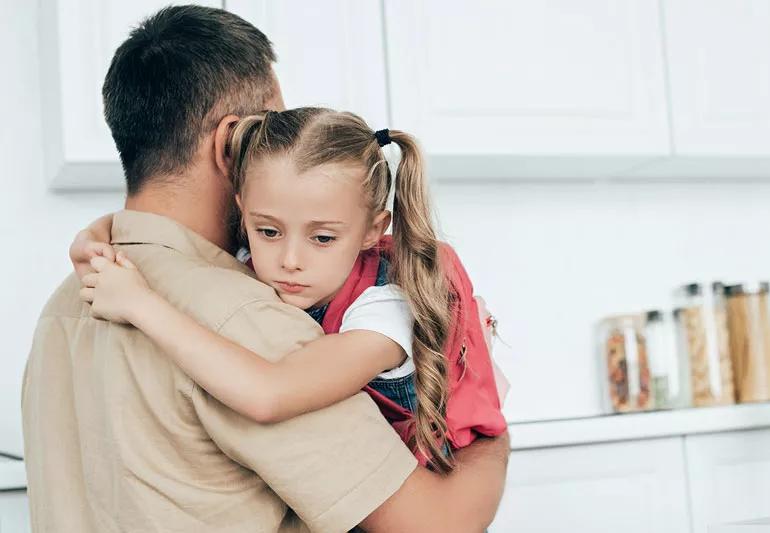How to best handle classroom conflict

Your child comes home from school, dramatically flings down their backpack on the floor and declares: “My teacher is mean!”
Advertisement
Cleveland Clinic is a non-profit academic medical center. Advertising on our site helps support our mission. We do not endorse non-Cleveland Clinic products or services. Policy
It’s normal to be at a loss for how to respond. But pediatric psychologist Vanessa Jensen, PsyD, recommends starting by lending an open ear.
“I think the first thing to do is just listen,” she says. “Let them talk on. Let the child tell their story without judgment — just let them get it on the table — with a lot of neutral comments like, ‘Uh huh’ or ‘Hmmm.’ Or ask neutral questions such as, ‘What happened then?’
The thing you don’t want to do is say, ‘Oh, she is so mean,’ or, ‘How could he say that to you? That was inappropriate.’ Just don’t go there.
Sometimes (like adults) kids just need to whine and complain. And know that you care enough to listen.
Have your child put their thoughts and feelings into words, Dr. Jensen says. This can help them problem-solve their way through the issue.
Then perhaps, if the issue persists, get the teacher’s side of the story.
“Sometimes it’s just clarifying with the teacher, and asking: ‘You know, Susan came home the other day and she was all upset about something. I was hoping you could help me understand what happened, as far as you’re concerned,’” explains Dr. Jensen. “It may be something very simple, innocuous — the teacher was having a tough day and gave a funny look, something totally benign.”
After getting more information, you can decide if there’s a need to sit down with everyone — parent, child and teacher — to get to the bottom of things.
Advertisement
If you have very young children, it’s important to remember that it’s easy for situations to be misinterpreted (especially if your child is very sensitive or anxious).
And remember that conflict can provide a learning opportunity for children of all ages.
Never ignore or completely dismiss your child’s concerns, especially if the issues keep recurring or are more serious. But Dr. Jensen also cautions not to intervene over every little thing, especially if you have an older student.
There comes a time when your child benefits from having the chance to handle what’s troubling them on their own.
“You want to start easing your way out of the role of managing everything for your child as they move into high school, so that more and more decisions are made (at least the decisions are talked about and thought about) with the student and the teacher, or the student and the guidance office,” she says.
“Obviously, parent input, asking questions and giving thoughts is important. But you eventually want them to start having them negotiate those things a lot more on their own, so they are prepared for life after high school.”
Often times, student-teacher conflict may be the result of a mismatch between the student’s style of learning and the teacher’s style of instruction, Dr. Jensen notes. But if you’re concerned about something inappropriate or troubling, it’s important to follow up on those concerns with the child’s teacher or school administrator.
Advertisement

Sign up for our Health Essentials emails for expert guidance on nutrition, fitness, sleep, skin care and more.
Learn more about our editorial process.
Advertisement

Preschool age is typically between 3 and 5 — but readiness may matter more

Asking questions, creating routines and setting schedules can help get students back on track

All states require DTaP, MMR, polio and chickenpox vaccines — healthcare providers recommend others, too

School can be stressful, even anxiety-provoking — get to the root of the concern and enlist help when needed

A well-balanced lunch should include a protein, whole grain, fruit and vegetables, and a healthy snack

‘Active shooter’ exercises may raise both awareness and anxiety

Focus on a positive mindset, strong study habits and healthy living

Vomiting and fevers are a hard no — other symptoms are a judgment call

Although it could be used as a moisturizer, this new trend is not recommended

Communicating clear limits helps protect your time, energy and emotional well-being

High cholesterol can be genetic, but testing and treatment can lower your heart disease risk